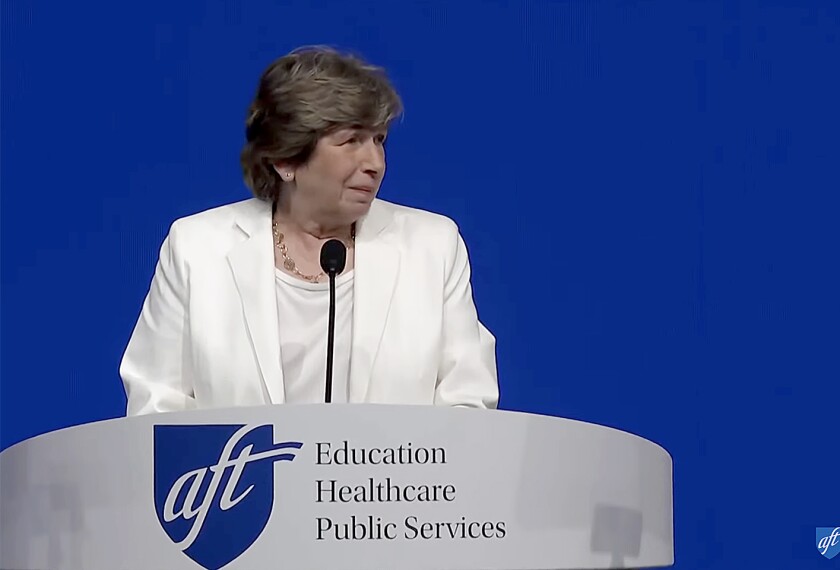A House committee approved a pair of bills last week aimed at bolstering mathematics and science education, even as rifts emerged between lawmakers and the White House over the best strategy for accomplishing that widely shared goal.
A bipartisan group of House Science Committee members on June 7 unanimously backed a bill that would greatly expand existing scholarship aid and teacher-training programs run by the National Science Foundation, an Arlington, Va.-based independent federal agency that has long backed efforts in those areas.
Read related article,
The legislation, sponsored by Rep. Joe Schwarz, R-Mich., and backed by the committee’s leadership, is one of several on math and science education to emerge on Capitol Hill in recent months. A second bill approved unanimously by the panel would expand federal support for math and science research.
President Bush, meanwhile, is promoting his own American Competitiveness Initiative, which calls for more investment in Advanced Placement and International Baccalaureate math and science programs and greater federal promotion of effective math teaching strategies, among other steps.
But amid the calls for action, there appears to be disagreement over which federal agencies should lead such efforts, and where the greatest attention is needed.
The chairman of the Science Committee, Rep. Sherwood L. Boehlert, R-N.Y., in voicing support for the bill before the panel, argued against launching new federal programs in math and science. He believes existing NSF programs provide the infrastructure to accomplish those goals.
Money and Influence
“This measure is an intelligent middle ground between those who want to create scores of new, untested, expensive programs,” Mr. Boehlert said in reference to the scholarship and teacher-training bill, “and those who argue that all that’s necessary is to increase overall funding for basic research and leave everything else to chance.”
Both Rep. Boehlert and the ranking Democrat on the committee, Rep. Bart Gordon of Tennessee, voiced concern that the Department of Education, instead of the NSF, would play a larger role in math and science education under the president’s proposal.
The K-12 bill approved by the House Science Committee would greatly expand the NSF Robert Noyce Teacher Scholarship Program, which provides money to students who major in math, science, or engineering in college and agree to teach in public schools. The program, named for a co-founder of the Intel Corp., also supports teacher training at higher education institutions. Funding for that program—one of several that would receive a budgetary increase under Mr. Schwarz’s proposal—would jump from $9 million in fiscal 2006 to $50 million in 2007.
A bill introduced in the Senate earlier this year, the Protecting America’s Competitive Edge Act, would create new grants and scholarships for math and science teachers, and expand AP and IB programs, under the direction of the Education Department. The House Science Committee bill backs an expansion of AP and IB programs within the NSF.
The House science panel’s vote came just two days after John H. Marburger III, the director of the White House science and technology policy office, wrote to Rep. Boehlert to voice concerns about the cost and effectiveness of the math and science bills.
Asia Report
The legislative activity also comes at a time when U.S. business leaders are voicing worries about the country’s ability to produce skilled workers and compete in the international economy. A report issued last week by the Asia Society, a New York City-based nonprofit that studies international education, traced strong math and science performance in China and other East Asian nations to national curricula, teacher-training, and significant time spent on academic tasks, among other factors.
Susan Traiman, the executive director of education and workforce policy at the Business Roundtable, a Washington-based group of major corporate executives, acknowledged her concern that math and science legislation might stall in Congress. Federal lawmakers, she said, could create some new programs by carving out money for them in the fiscal 2007 budget, rather than authorizing new legislation. She also hoped they would continue to take up math and science proposals that did not pass this year.
“We’re open to any process that would provide a vehicle to move this forward,” Ms. Traiman said. “There are a lot of ideas, but there’s some sentiment that we shouldn’t have any new programs.”





